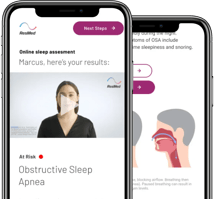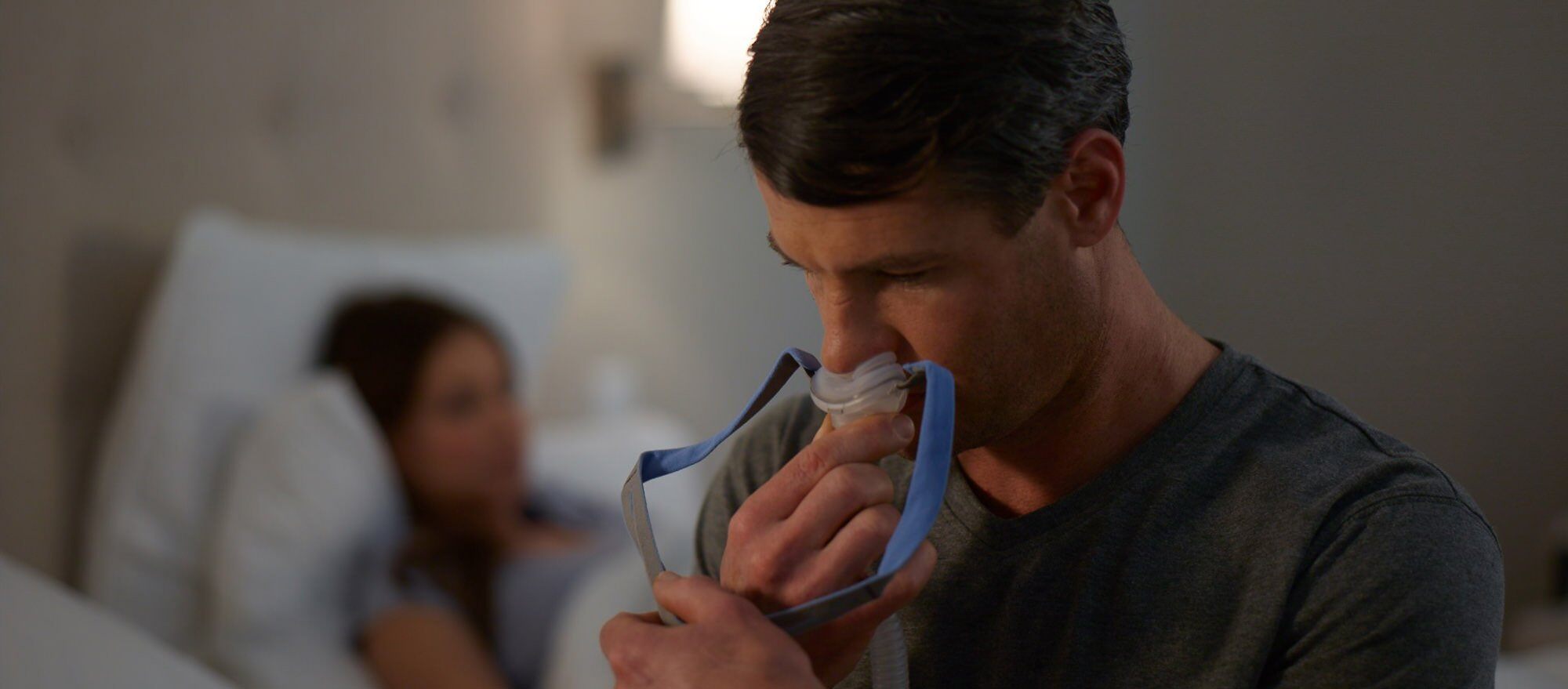Every individual with sleep apnea experiences different levels of air obstruction in their passageways and throat.
That is why it’s necessary to ensure your CPAP device is set to the right level for you so you can breathe easily throughout the night and wake up fully refreshed the next morning, ready for the day ahead.

Your CPAP (Continuous Positive Airway Pressure) device ensures your breathing is not obstructed through the night by continuously applying air pressure through your nose or mouth. This is one of the most common ways to treat Obstructive Sleep Apnea.
Left untreated, your airway may become obstructed while sleeping due to the position of your tongue or throat tissue. Applying this positive airway pressure helps address this by keeping the airway open, helping reduce the instances of you waking through the night gasping for air.
This helps to restore your quality of sleep every night.
What Do CPAP Pressure Settings Mean?
The key is to ensure that your CPAP device settings are appropriate for your specific condition. For most people, an appropriate CPAP pressure is between 6 and 14 cmH2O, with an average of 10 cmH2O. Your sleep specialist can help you determine what specific level is right for you.
Over time, your CPAP device pressure may require adjusting. For example, if you start snoring while using your CPAP device, this would indicate that the level is no longer right for you and may require some fine-tuning.

Is My CPAP Pressure Too Low?
If the pressure is too low, you may continue to experience difficulties breathing through the night, despite you using your CPAP machine. You need enough pressure to keep your airways open, so if they are still being restricted, your body won’t be getting the amount of oxygen it needs throughout the night.
Those who experience more than five apnea or hypopnea events per hour will probably require the application of more air pressure. Not receiving sufficient air would probably result in poor sleep, feeling air-starved or daytime fatigue.
Furthermore, if you’re continuing to snore loudly despite using your CPAP device, it is likely you need to increase the air pressure. It is important to check that your device isn’t leaking air, as this may also cause users to snore.
If the pressure setting on your device is too low, you may also experience aerophagia, which can lead to gasping for air during the night which causes sufferers to "swallow" air into their stomachs. This can result in bloating, gas, discomfort, and excessive belching.
Is My CPAP Pressure Too High?
Can CPAP pressure be too high? Yes.
If your CPAP pressure is too high, you may experience discomfort in your mouth, nose or airways, which can make it difficult to fall asleep at night, and cause your overall therapy to not work as well.
If you are waking up through the night due to discomfort from too much air, you won’t experience a good night’s sleep, leaving you unrefreshed in the morning. Daytime fatigue is exactly what your CPAP device is supposed to stop – so if you’re experiencing this because the settings on your device are too high, then it’s defeating the purpose.
As when the air pressure is too low, if your CPAP device’s air pressure is too high, this may also cause aerophagia, where you "swallow" air in a gasp.
Excess air pressure may also lead to a burning sensation in the nose and throat, or lead to fluid entering the ears at night, causing hearing issues and fluid leaking out of the ears.
What CPAP Pressure Do I Need?
Sleep professionals use the AHI (apnea-hypopnea index) to indicate how many times you stop breathing over the course of an hour of sleep. Generally, if you are experiencing an AHI level of five or more each hour, your CPAP device settings should be increased.
Always consult with your sleep specialist to determine the right air pressure for you.
How To Change CPAP Pressure Yourself
If you are experiencing any of the symptoms, above, that are associated with the pressure being either too low or too high, consult your sleep specialist about having your CPAP device settings adjusted.
Your sleep specialist will monitor your AHI level to determine which settings are right for you.
Changing the CPAP device setting yourself may result in adjusting the pressure too far in either direction, which could lead to a higher AHI reading, which would not be beneficial.
You may want to consider an AutoSet Device
EdenSleep now has ResMed’s new generation of AutoSet devices which could be ideal for you.
You can choose from four new devices including the AirSense™ 10 AutoSet™ which adjusts its pressure levels to fit your changing needs – ensuring you only receive the lowest pressure necessary, without compromising your nightly therapy.
With AutoSet, you never need to worry about whether your CPAP device is delivering the right level of air pressure for you. The devices will detect your breathing level and adjust accordingly.
Click here for further information about our AutoSet devices so you can sleep easy!
.webp?width=1158&height=143&name=Combined%20logo%20-%20Ecom%20Main%20300x200%20(1).webp)





